Albert Ong is based in Sydney, Australia, and is the Founder of Tinkery, a hardware startup making fun hands-on STEM learning accessible anywhere. He started this company to share the love of tinkering and building technologies of the future. Albert began his career as an Educator and Research Assistant at the University of Technology, Sydney (UTS) while an undergraduate. Later he worked as a Technology Consultant at Accenture in eHealth systems. He made his way back to UTS as a Manager for a robotics facility and an Associate Lecturer for Transdisciplinary Innovation.
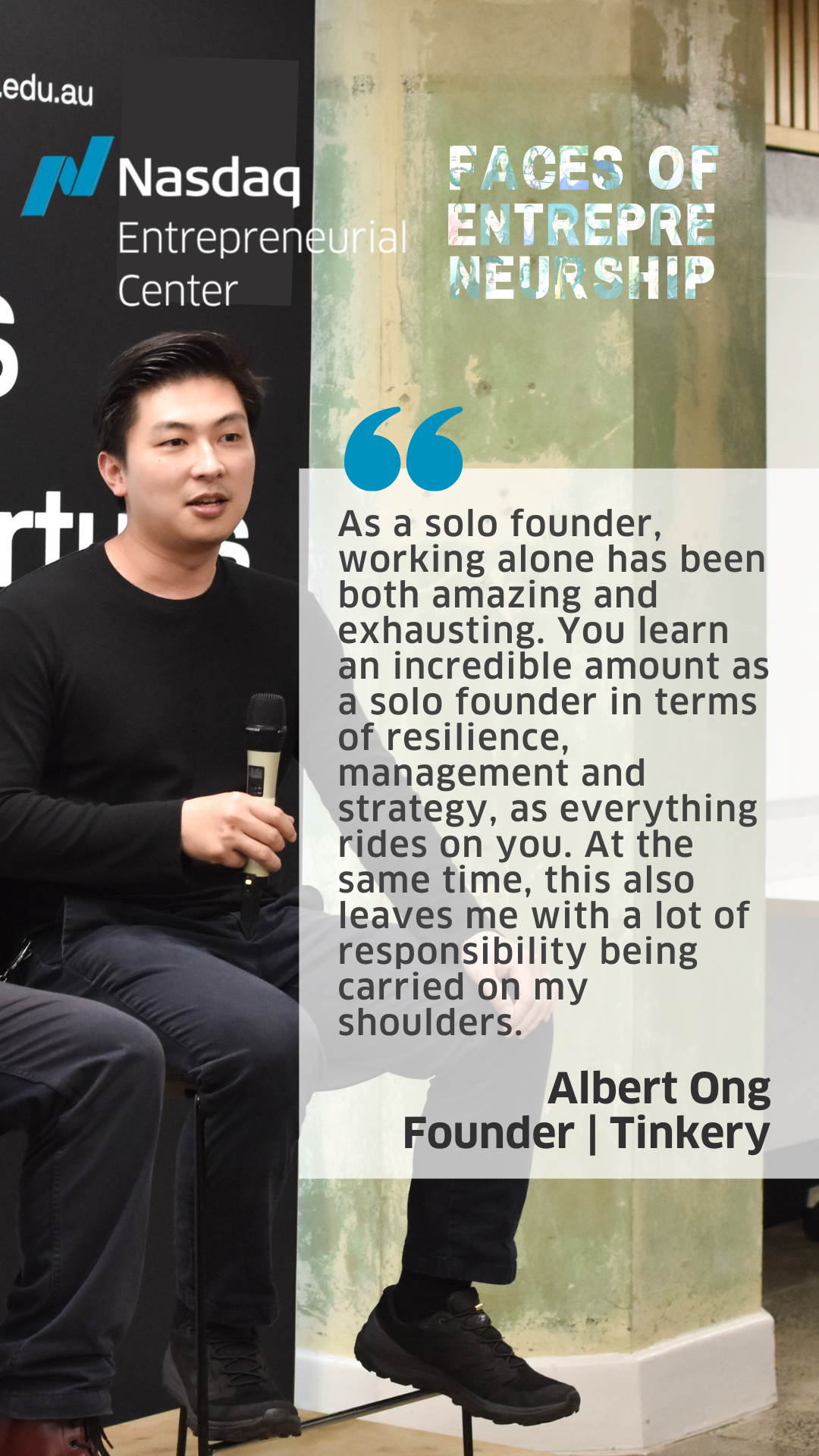 What does “entrepreneurship” mean to you?
What does “entrepreneurship” mean to you?
Albert Ong: “Entrepreneur” to me means a person that trailblazes a vision and steers a team toward building a business towards achieving that vision.
Tell us about your first experience with entrepreneurship.
AO: My first experience with entrepreneurship was developing my first start-up when I was 13, a gaming and homework help website. I later parked this to work on developing technology to help improve .
What is your company’s origin story? What is the biggest reason you started your business? What did those early days look like and teach you?
AO: Tinkery’s origin story comes from my grassroots as a Tinkerer. I started building electronics when I was 6 and used tinkering as a way to navigate through problems and channel my creative energy to build a better world. I later realized that even though I can build amazing tech, I can’t build enough to change the world on my own. So, I started Tinkery to help train and grow an army of tinkerers to build the future of tech.
What do you wish you knew when you started? Is there anything you would do differently?
AO: One thing I wish I knew when I started was not bringing in expertise during the early stages of setup. Being strapped for cash made it hard for me to bring in professional expertise, but I later learned that bringing them in early on prevents heavy costs down the line for fixing things.
What does “success” look like for you? We’d love to hear your biggest, boldest dream. What do you think will help you achieve it?
AO: Success for me is building Tinkery into a community to design and build cutting-edge technologies. I believe in utilizing technology to break past human limitations, and to build and grow an empathetic, sustainable, and supportive community.
What is your superpower as an entrepreneur? What is your proudest and darkest moment so far? Share a key high and a key low from your journey if you can.
AO: My superpower as an entrepreneur is my tinker mentality – allowing me to reframe complex challenges into opportunities, and I tinker and study different options to observe effectiveness and impact.
My proudest moments are when I share technology and ideas with the community that leave them with a “wow” and “aha” moment, and inspire them to step up to build their own contribution to community and global betterment. I learned when I was young that as a leader, I work for the people I lead, and so I work hard to give back to my community in the best way possible.
As an entrepreneur, my darkest moment was also my biggest learning, and that was to not take everything onto myself. I have been through several burnouts, and
What are your personal driving principals, your top values?
AO: My driving principles are being a lifelong learner, living differently each day, and doing mistake-ism; that mistakes are learning opportunities for discovery and experimentation.
My top values are honesty, collaboration, sharing, and growing. I believe in living a life guided by fullness, gratitude, truth, and transparency.
How have your personal principles and values shaped your company’s values and principles? Give us some examples.
AO: My personal principles and values are the guiding values of Tinkery. All our classes and workshops include an ethos in our introduction that establishes our company values, and these help foster an environment of sharing, trust, openness, and mutual understanding. These also steep into all the projects we work on, where we work on a customer-first approach.
What’s it like to work alone or with your partners?
AO: As a solo founder, working alone has been both amazing and exhausting. You learn an incredible amount as a solo founder in terms of resilience, management, and strategy, as everything rides on you. At the same time, this also leaves me with a lot of responsibility being carried on my shoulders.
Do you have a mentor? Tell us about what makes them valuable to you and your business.
AO: I have two mentors from StartOut, a global LGBTQIA+ Founders Community.
What role does mentorship play in your world (as a mentor or mentee)?
AO: As a mentee, mentorship gives me guidance and feedback on my execution and financial strategies. Having mentors allows me to bounce ideas off their Industry expertise, and this helps us come up with unusual or Innovative approaches to challenges or insights that I would not have been able to come up with on my own.
As a mentor for student-led start-ups across Sydney, this provides me an avenue to give back to the Sydney start-up ecosystem. It also allows me to develop my own skills with on-the-spot decision-making and Ideation.
Many entrepreneurs continue to perfect their daily routines to support their work and greater vision; would you mind sharing your morning routine or a regular ritual that grounds your work each day?
AO: For me, my routine has three main components.
First, I need to have direction and see that I am progressing; ensuring that I have goals to achieve and that I keep moving forward. I always spend an hour on Sunday night and last half hour of every night on monitoring and assessing metrics over the past week. This involves checking if I am where I want to be, and if the metrics I’m measuring align to that.
Second, I need to ensure that I am in peak condition. This means timeboxing moments to eat well, maintain fitness, meditation, and maintain relationships.
Lastly, I need to ensure that I am building and investing in a better version of myself. I will allocate time to reading up on new research, methods, and courses to learn and apply in Tinkery.
What are you reading or have read?
AO: One of the books that I connected strongly with when I started was “Innovate the Pixar Way” by Lynn Jackson and Bill Capodagli. It helped me see how decisions and operations led by common values and shared knowledge open departments to shared experiences and a highly adaptive and sophisticated culture.
I also consume literature on science fiction, scientific literature, and current affairs. This helps me see where we are as a community, and where I can see where the future could be at and how Tinkery can build towards that.
Where do you go for inspiration?
AO: For inspiration, I look at science fiction, scientific literature (journal articles), and meetups with professionals and students. I enjoy uncovering insights from random conversations, and this gives me a sense of cohesion with my local community.
Do you have a favorite quote, mantra, or words of wisdom to get through the tough days?
AO: For my tough days, if I’m ever in a rut or if I have a feeling that I should stop when it gets tough, I always go back to why I started. This also means thinking of what people would miss out on If I didn’t do what I set myself out to do.
For a phrase: No matter what choices you make in life, never regret your choices.
What is a problem that keeps you up at night?
AO: A problem that keeps me up at night is always ways to increase cash flow. And balancing cash flow with growing my team.
How do you think about helping others through your work?
AO: I think about helping others by listening to them first and putting my assumptions aside. This is incredibly important to ensure that what we deliver at Tinkery is both meaningful and impactful to my customers.
What advice do you have for fellow (and aspiring) entrepreneurs building and leading teams?
AO: Take the time and figure out how you operate and set up your financial models before hiring. Also, make sure you write all these down somewhere accessible for everyone in your company to refer to.
When you need to hire an SDR, you should have some concrete idea your sales funnel, messaging, and channels before hiring. Having these written down makes training and handover easy. Having financial models tells you at what revenue targets you should be hiring new staff and for what roles.
What kind of an entrepreneur do you want to be known as – as in, what do you want your legacy to be?
AO: I want my legacy to be a tinkerer of the future, and to be a leader of a community (or army) of tinkerers building technologies and solutions for global sustainable betterment.
Have you raised outside capital so far?
AO: No. My business is completely bootstrapped. I chose not to fundraise for Tinkery so far because it has not been something I needed at this point. I may consider fundraising in future.
Where do you meet investors?
AO: I meet them in several ways. Through start-up networking events, accelerator programs, introductions from fellow entrepreneurs, and through cold connections.
Do you have someone you’d like to nominate to be profiled in our Faces of Entrepreneurship series? Please let us know by emailing media@thecenter.nasdaq.org or submitting your nomination using this form.
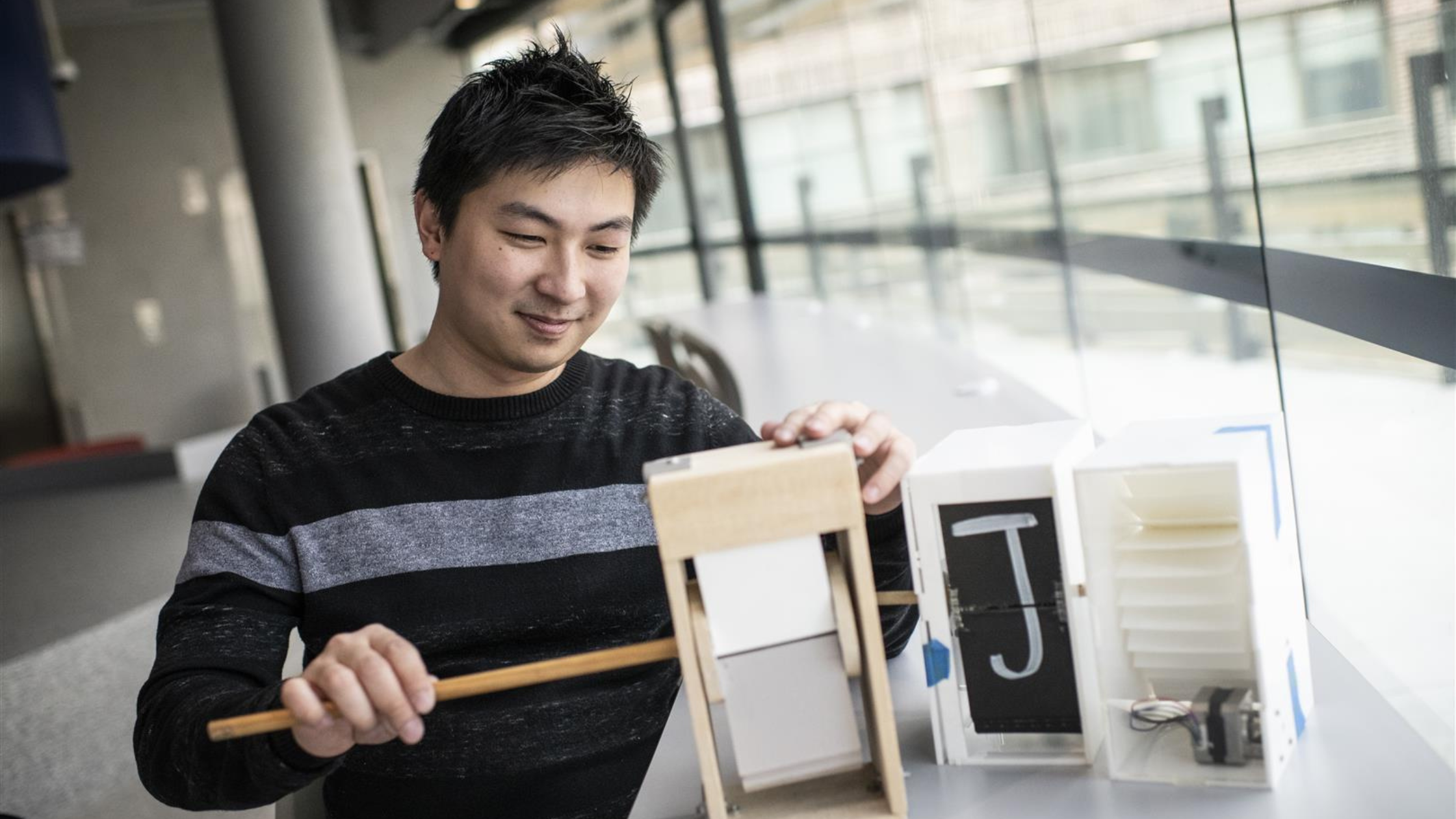
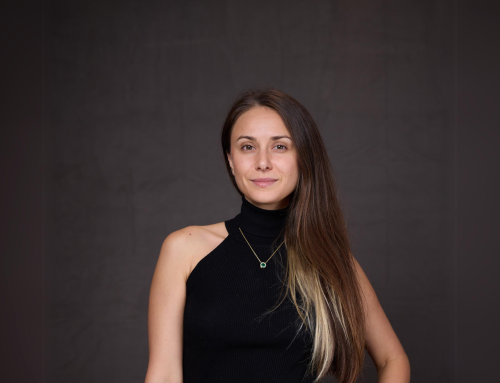
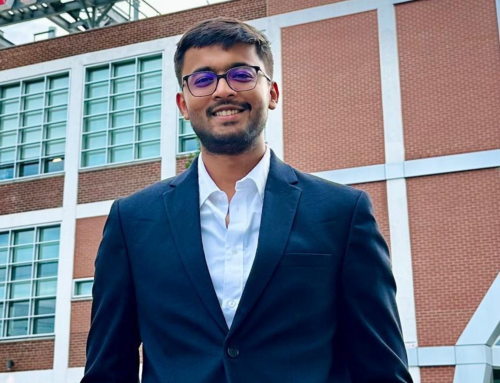
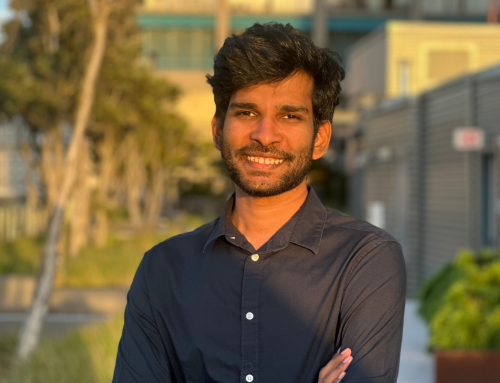
Invite a Friend
Close